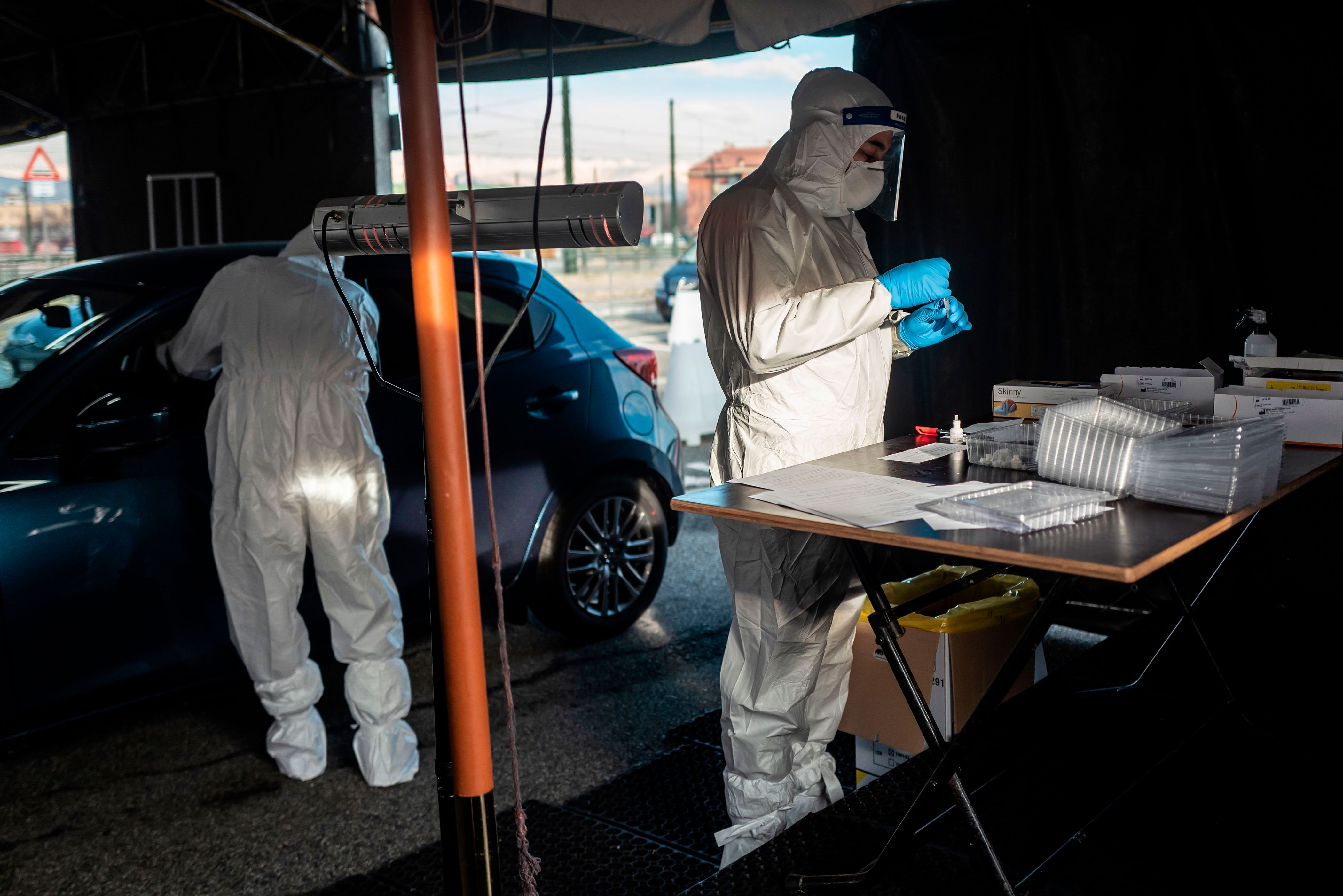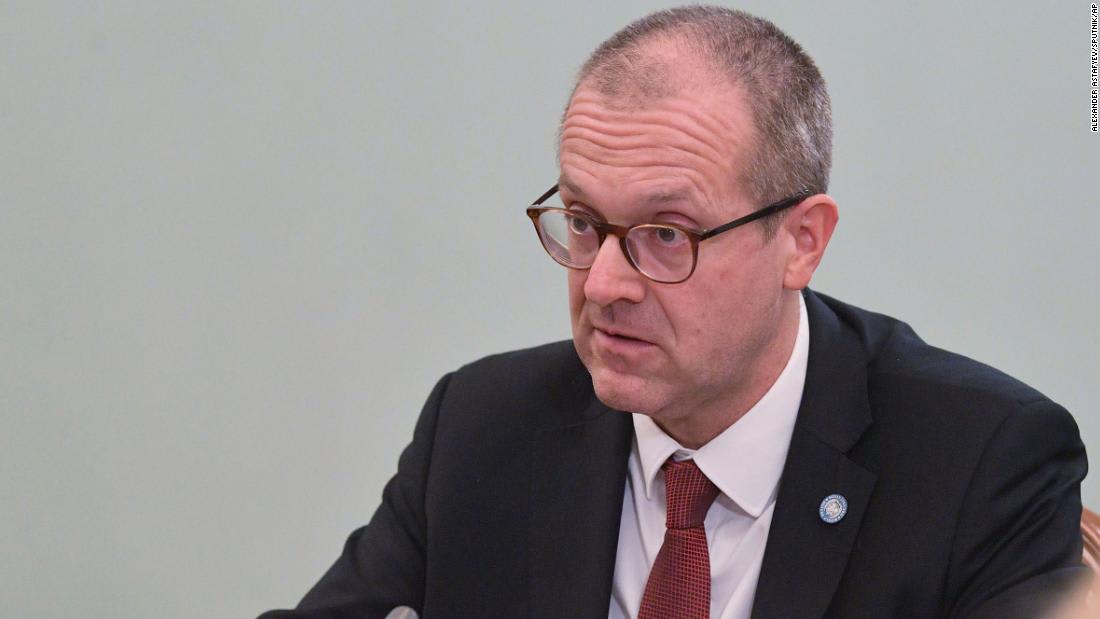
Thirty European countries have reported “a significant decrease in 14-day cumulative incidents” of new coronavirus cases but it still “too early” to consider easing restrictions, the World Health Organization’s Regional Director Hans Kluge said.
At least 25 European countries are currently facing partial or nationwide lockdown measures and these appear to be having an impact, Kluge said at press conference in Copenhagen Thursday.
Despite these positive indicators, Kluge warned it is still “too early to ease up” restrictions with Europe’s “high transmission rates” still impacting health systems. Countries “opening up rapidly is a poor strategy” he added.
Deaths in the region have also continued to “plateau at record levels” with 38,000 deaths reported last week.
Kluge added that Europe is facing a “pandemic paradox,” with the rollout of the coronavirus vaccine offering “new hope” as the continent continues to grapple with the threat of “newly emerging variants of concern.”
This paradox, where communities sense an end is in sight with the vaccine, but at the same time are called to adhere to restrictive measures in the face of a new threat is causing tension angst, fatigue and confusion,” Kluge said.
“Continued high rates of transmission and emerging Covid-19 variants of concern” have “raised the urgency of the task to vaccinate priority groups,” he added.
According to Kluge, 33 European countries have reported cases of the UK variant whereas 16 European countries have found cases of the South African variant.
As the pandemic has expanded to over a year, Kluge remarked the European region is also dealing with a “parallel pandemic” of poor mental health.
According to the International Labor Organization, the pandemic has meant that half of young people aged 18-29 are now suffering from anxiety and depression.
Healthcare workers have not been left unscathed either, with 20% of healthcare workers suffering from anxiety and depression.
Kluge said European countries need to “stay patient” cautioning it “will take time to vaccinate against Covid-19.”
“The introduction and gradual lifting of measures based on epidemiological criteria remains our best option to allow economies to survive and minimize collateral effects” he concluded.
Read more on the WHO reaction here:
You may also like
-
UK coronavirus variant has been reported in 86 countries, WHO says
-
NASA technology can help save whale sharks says Australian marine biologist and ECOCEAN founder, Brad Norman
-
California Twentynine Palms: Explosives are missing from the nation’s largest Marine Corps base and an investigation is underway
-
Trump unhappy with his impeachment attorney’s performance, sources say
-
Lunar New Year 2021: Ushering in the Year of the Ox


